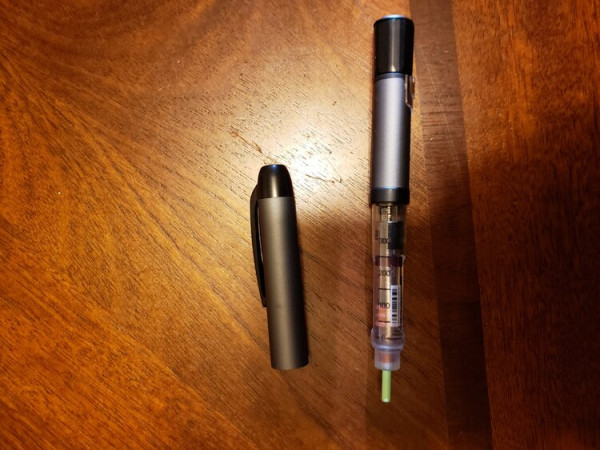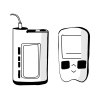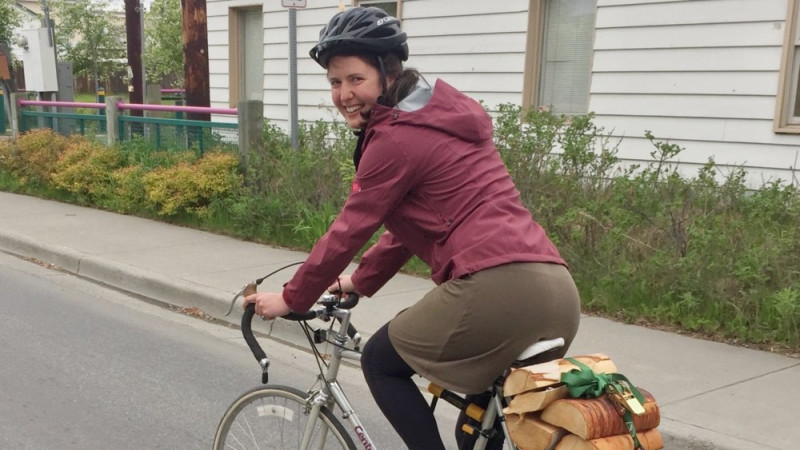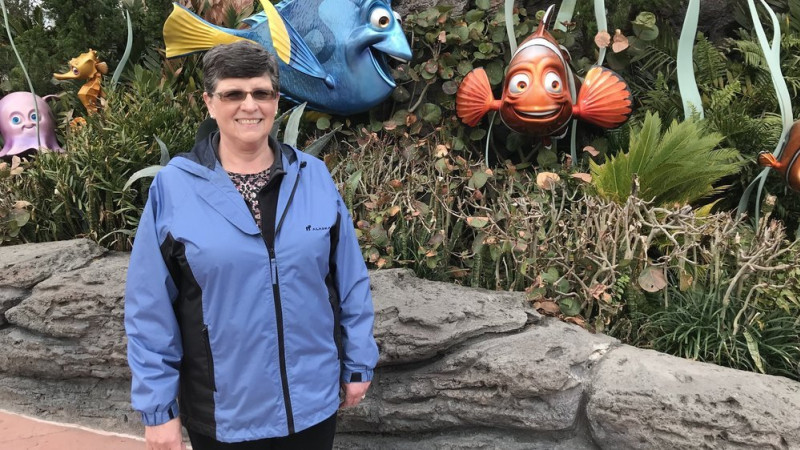Device Combo

Why did you choose a sensor and injections?
I was on the OmniPod pump for a little while. And I loved it. And then I switched jobs and the insurance wouldn't cover the pump anymore. So I went back to just the sliding scale and I've been doing that for probably two, three years. I was struggling with it. I wasn't managing it the way I should. And then my doctor said something about the InPen. I started that in June of this year and I absolutely love it. It has helped out tremendously. With the InPen, there is an app that you can put on your phone, and the pen itself has Bluetooth in it. So it links to your phone and the app I have basically controls everything. I test my sugar with the One Touch meter, and then I put whatever my glucose was in the app, and I put in how many carbs I'm eating for that meal, and it does all the math. It does all the calculations. And it tracks everything. It's a lot a lot easier.
What are the tradeoffs of using a sensor and injections?
Pros: It has a history of everything. It tracks how many units I take and it's a lot more convenient because instead of trying to calculate how many carbs I’m eating, what my sugar is, trying to figure out the carb ratio and all that and how much insulin I need to take - I just punch the numbers into the app and it takes care of everything. It even has a reminder for my slow release insulin every night.
Con: I would say a con is it does take a little bit longer, like when I'm getting ready to eat a meal, because I have to test my sugar with the One Touch, put all that away, then get on my phone, type in everything, and use the InPen to give myself the injection. So it does take just a little bit longer, but it’s not a huge issue.

How do you respond to people when they notice or comment on your devices?
I just let them know that I'm diabetic. Basically just break it down, be like, ‘hey, this is what this is.’ Even a couple weeks ago I had somebody ask me about the InPen. I pulled up the app on my phone, showed them everything it did and they were very receptive of everything I said. I think a lot of the issue is people are becoming aware about diabetes, but there are still people that don't know everything that goes with it - what all it necessarily entails that somebody with diabetes has to do.
Diabetes devices can produce a lot of information and numbers. How do you feel about this? What do you do with all the data?
I like it. I've always been kind of a math nerd. I love numbers and all that. But like I said, the InPen tracks everything. And every two weeks on the app I can generate a report instead of having to write down on a log sheet what each of my readings were in the morning, what it was before lunch and all that. Every two weeks on the app I can generate a report for the last two weeks and fax it to their office. So I don't even have to go there to turn it in. You would think it wouldn’t be that hard to just run over to your doctor real quick to turn a paper in but that's a nice thing where I don't have to worry about trying to get there every couple weeks or every week to turn in all my logs.
My doctor and I talk about (the reports) when I go every three months for my appointment with her. If there're any issues between those appointments, I can get a hold of her. Or she’ll get ahold of me - but I send those reports in every two weeks. If there's any adjustment that need to be done the office will call me and tell me what adjustments I need to do and why I need to do them. And they showed me how to do the adjustments within the app itself when I first downloaded it, so I am able to do that on my own.
How do you carry your devices?
I call it my purse, but it's just a quart size or maybe a gallon size sandwich bag that I carry everything in, and it goes with me everywhere I go. If I go out to eat at a restaurant, I'll leave it in the car. I don't take it in. I’ll test and everything before we go in to eat. But people see it and then they'll ask me what it is. And I'll tell it's my purse and then why I carry around a purse.
What helps you trust your devices?
I wasn't that apprehensive about it because my doctor explained it to me and walked me through everything.
My doctor gave me a one-on-one breakdown of everything, which was a huge benefit on getting me to make the switch. But everybody with diabetes reacts differently to different things. No two people respond the same way to something. So I don't know that I would have been willing to take the chance on this without the one-on-one breakdown. But I definitely would have done some research and looked into it.
What would you tell someone considering this same combo?
It's definitely a lot more convenient as far as the constant reading labels, trying to break everything down and all that. So just being able to punch in your numbers and having it do all the calculations - it is very reliable.
And to me personally, it was kind of like a weight lifted off my shoulders because I didn’t have to worry about doing all that stuff anymore. I was able just to test my sugar, put in the carbs I'm eating, and that was it.
Basically the biggest change is I don't have to do all the calculations. I'm still testing my sugar, I'm still controlling everything, but it does all the calculations and tells me what I need to do. Within a couple weeks of using it, I saw myself getting back under control and all my numbers started to get back within range. So it’s really been working really great for me.
What challenges do you have and how have you overcome them?
I used to be on the OmniPod. I switched jobs and the insurance changed, so it wasn't covered as well as my previous job and I couldn't afford to stay on it. But the job I have currently covers all my prescriptions and everything - my insulin and the InPen.
When I got the InPen, there was just a $25 copay for the InPen through my insurance, which was great.
More Wisdom

Even though my pump has malfunctioned before it is worth having because my blood sugar is more in control when I use it.
Ashley


Diabetes is one piece of my life that I now have some control over.
Kelsey


I get tired of the CGM beeping at me at times especially if my blood sugar is low and I’m waiting for it to climb, but I’m thankful it wakes me up at night!
Joyce




